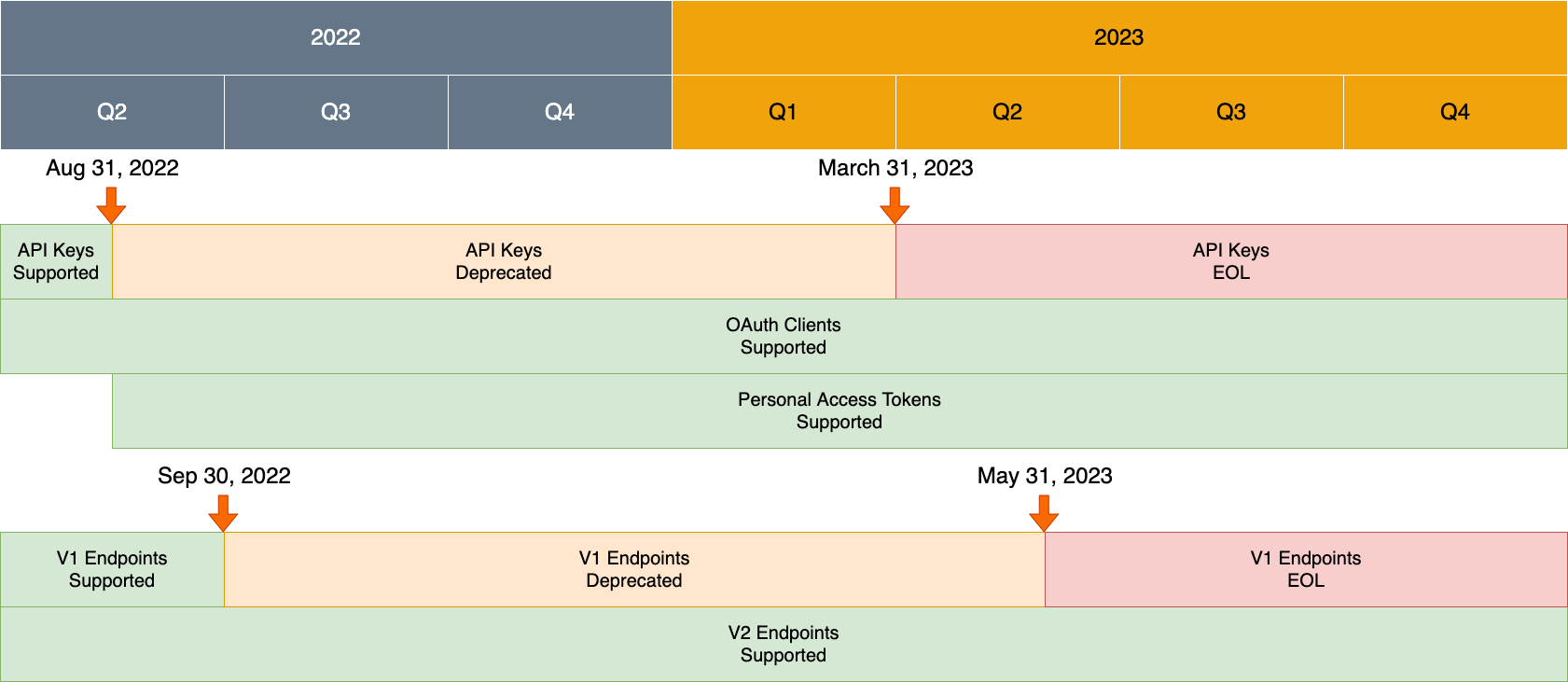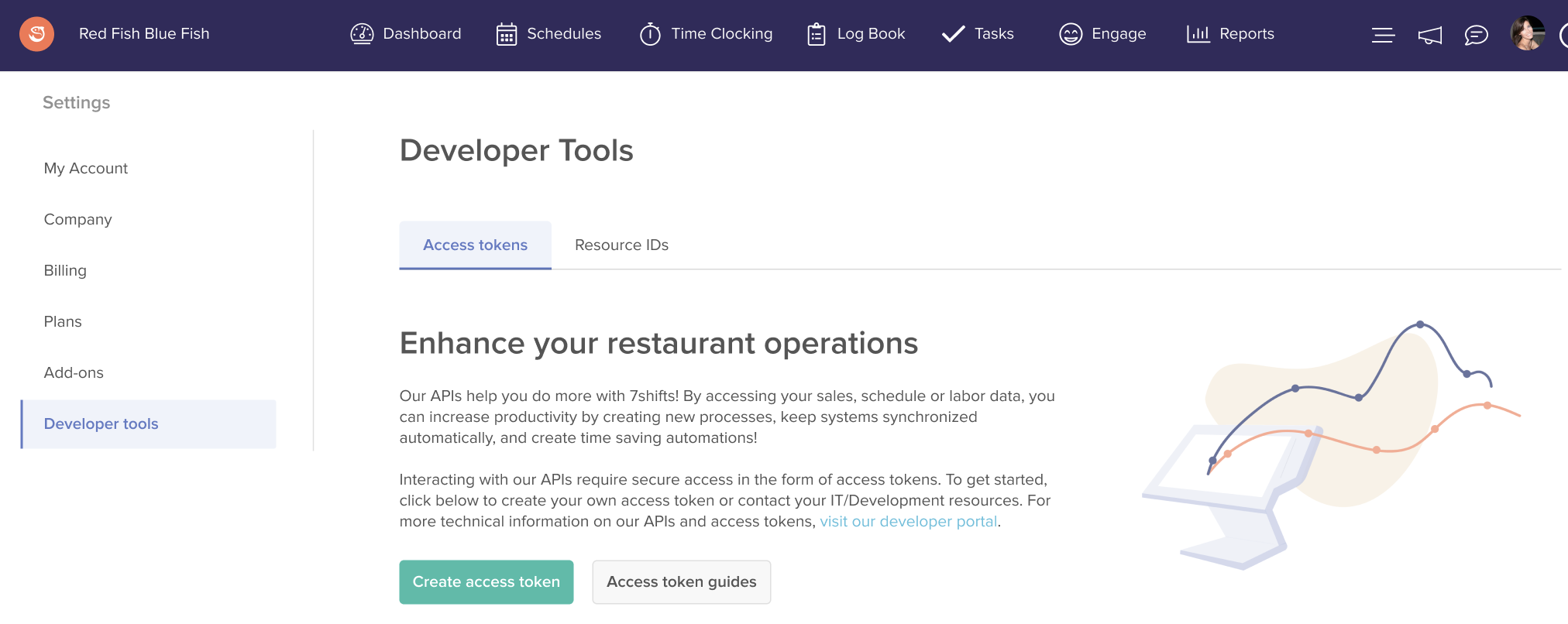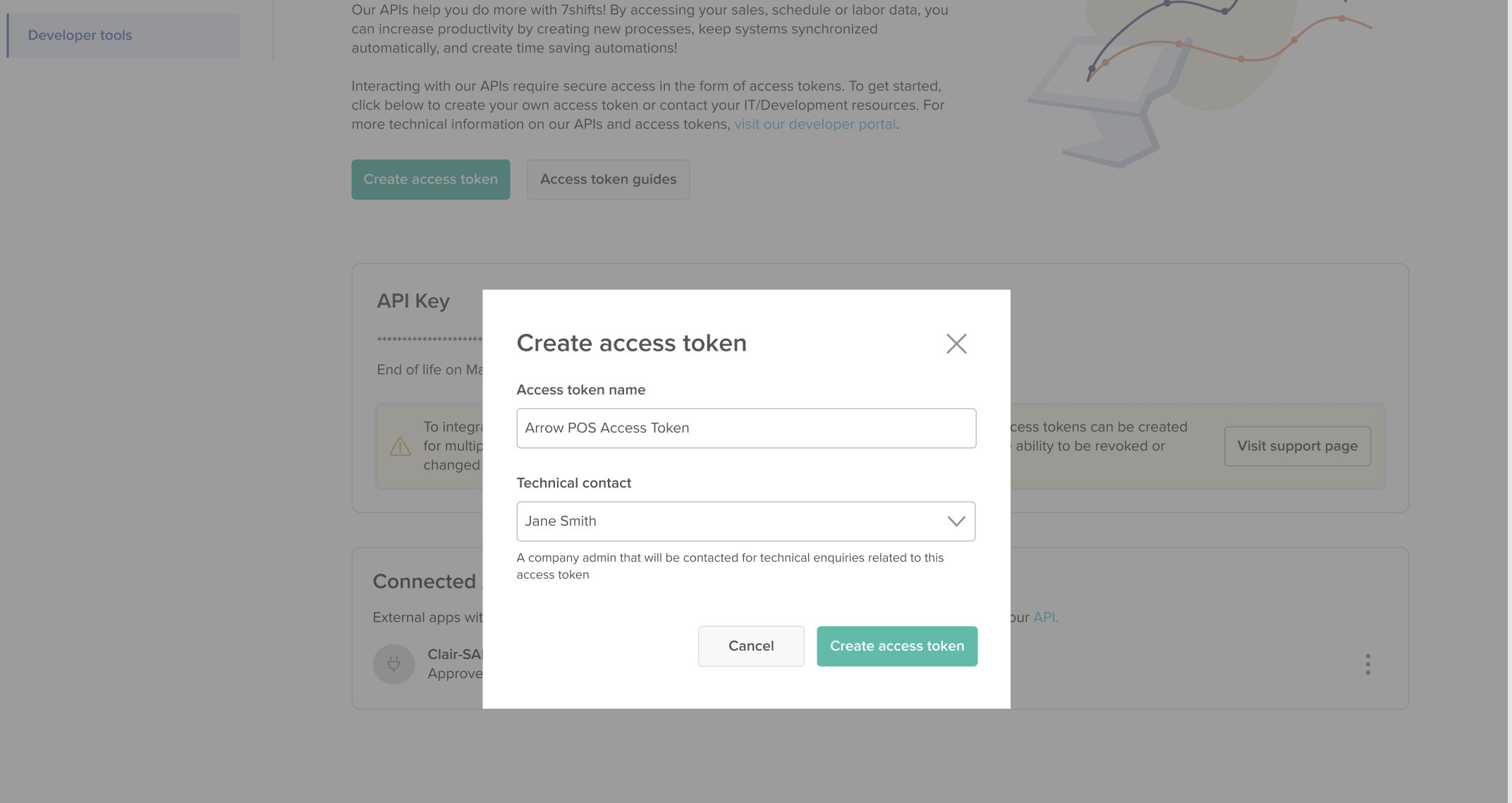Migrating from API Keys
7shifts is deprecating API key authentication to access API resources on August 31, 2022 and will be End of Life (EOL) on March 31, 2023. Please read this guide to understand the impact of the changes and how to migrate to a supported authentication method.
Changes starting on August 31, 2022 (Deprecation period)
On August 31, 2022, 7shifts is no longer recommending the use of API key authentication to access API resources. You can continue to use API key authentication during the deprecation period until it is EOL on March 31, 2023. You should use this time to migrate to a supported authentication method to access our API resources.
If your company has already generated an API key, you will continue to have access to it. If you require a new API key you will be able to create one, although it is only recommended if the integration you are using does use a supported authentication method.
Changes starting on March 31, 2023
On March 31, 2023, 7shifts will no longer support API key authentication. You will lose access to view already generated API keys and you will not be able to create new ones.
Any API request using API key authentication will fail and return a 401 Unauthorized response. To ensure uninterruped access to our API's you must migrate to a supported authentication method before this date.
Why are API keys being phased out?
API keys are being phased out to increase security and add additional functionality to our API resources. At a high level, these are the limitations being addressed:
- Security - API keys have admin privileges and cannot be changed or deleted. Trying to prevent their use after being issued is very difficult and can interrupt additional integrations.
- Single use cases - API keys must be shared as only one can be created per company. It is difficult to figure out who is using them for authentication or distirbute them for different uses.
- Lack of scoping - API keys have admin privileges and can't be restricted to certain resources or actions.
- V2 endpoint access - API keys don't have access to V2 endpoints.
Important Dates Timeline
The following timeline explains in detail each period of the API key lifecycle and when it will become End of Life (EOL):
- 2022-08-31 API keys are deprecated and no longer recommended
- 2022-08-31 Access Tokens are supported
- 2022-09-30 API V1 endpoints are deprecated and no longer recommened
- 2023-03-31 API keys are EOL and no longer supported
- 2023-05-31 API V1 endpoints are EOL and no longer supported

Supported Authentication Methods
If you are using 7shifts API resources for for interal usage and are not looking to be a technology partner of 7shifts, you should migrate to access tokens for authentication.
All partners using 7shifts API resources should migrate to OAuth Clients for authentication.
NOTE: If you integrate with a large number of 7shifts companies, it may be beneficial to use an OAuth client for authentication. OAuth clients provide the ability to automate adding new locations with minimal user input and can speed up the process.
Access Tokens
You can create an Access Token for authentication with our API's. Access Tokens have the following benefits:
- You can create multiple tokens per company. You can name access tokens to describe its use and should prevent the need to share tokens for different applications or use cases. For example you can create seperate tokens for your development and production environments.
- Tokens must be assigned an active administrator within a company. This can help you identify who the primary contact responsible for the access token. Additionally, in case of important information regarding the APIs, 7shifts will contact the assinged administrator.
- They can be edited and deleted. When you no longer need a token or if you wish to revoke access to an application that is using a token, you can delete it for increased security. You can also change the administrator assigned to them.
How to create an Access Token
- As an Admin, sign into your 7shifts account and click on your Profile picture. Select Company Settings and click on the Developer Tools side menu.
- Once on the Developer Tools menu, click on Access tokens tab.

- Click on Create access token.
- Give the token a name. Examples are: the application/integration name, the environment it is for or the automation using it. Assign a technical contact, must be an active administrator. Click Create access token.

- Copy this newly generated access token by clicking the copy icon on the left of the access token.

- To use your token, use the bearer authentication scheme. Send the token in the
Authorizationheader when making requests as per the example below.
curl --request GET --url 'https://api.7shifts.com/v2/whoami' \
--header 'Authorization: Bearer ACCESS_TOKEN'
More details on Access Tokens can be found in our Authentication section of our API Reference.
OAuth Clients
All 7shifts partners must authenticate using the OAuth 2.0 flow to use 7shifts API endpoints. To create a new OAuth Client, please reach out to [email protected] to start the setup process.
To expedite the OAuth client creation process, please have the following information ready:
- Technical email contact. Should be a valid email address not tied to a user.
- First & last name of the primary technical contact.
- The official name for your company. Used during authorization process.
- A PNG image of your company logo. Used during the authorization process.
- A callback URL. Used to receive the company GUID after authorization granted.
More details on OAuth clients can be found in our OAuth Authentication guide.
Migrating API keys to OAuth Clients
When you have acquired an OAuth client, we can assist the migration from API keys by swapping the API keys you currently use for authorization grants (GUIDs). By performing the API key-to-GUID exchange, company admins will not be required to go through any of the OAuth Grant flow steps.
Contact [email protected] when you are ready to being the migration from API keys to OAuth client.
Updated over 2 years ago
